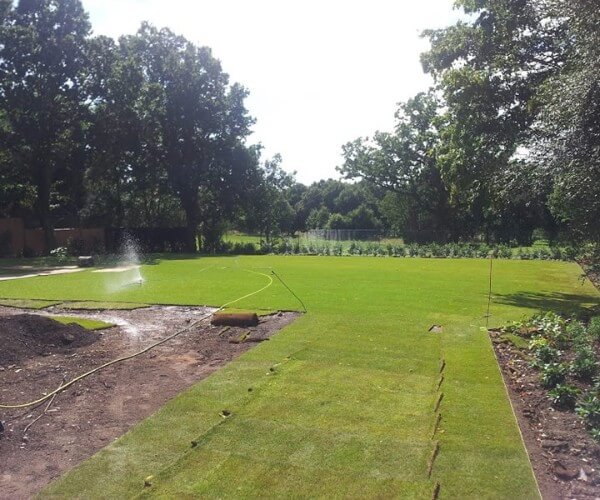- Lawn Turf
- Artificial
- Soil
- Timber
- Composite Decking
- Paving & Stone
Get In Touch With Our Experts Today!
Give us a Call! - Seed & Fertiliser
- Dressing
- Bark

September 01, 2020 Autumn Tips
Autumn is considered the best time of year to keep a close eye on your turf. Temperatures are dropping, there is less exposure to the sun, but the turf is still warm. Rain is steady, and competition from pesky weeds is at the lowest point after summer.
It’s also the time that turf begins to repair itself after a long, hot summer. There are a range of steps you can take to bolster your turf during the Autumn season. Spraying weeds, removing the build-up of thatch, aerating the soil, and many other simple tasks can help your turf look as fresh and green as the day it was planted.
During summer the shady and warm areas of the garden have likely accumulated a large amount of moss, particularly near fences, under trees and in the undergrowth. Moss covers the grass and prevents the lawn from receiving the light it needs to thrive during the shorter days of autumn.
Moss killer is an effective method to remove a large amount of weed and moss. It has an impact within two weeks when you should start to see the weed making a retreat. To prevent a return of the weed in the coming months, tackle the problem at the cause – remove low-hanging branches and areas of hedge that might be creating damp weed hotspots.
Thatch is a layer of ordinary garden debris that builds up on the turf, often hidden in the thick blades of grass. It can be old grass trimmings, twigs, leaves, pretty much anything that can turn to mulch on the surface. This can reduce drainage and cause a growth of weeds across the lawn. It’s quite easy to remove with a rake and then you can place the excess on the compost heap.
During summer, your turf and lawn get a lot more footfall than other times of the year. High traffic areas can get very compacted, which can cause problems with drainage and the growth of new grass. This is easy to remedy, simply move around the garden with a rake and press it into the turf. Move it around slightly to create air channels that reach the bottom layers of turf. You can also apply a sandy top-layer, brushing lightly across the lawn so that the new holes are filled.
Your lawn might be looking a little tired after summer, and that’s completely normal. Alongside the above tips, it’s a good idea to feed your lawn. Autumn fertiliser can be purchased at garden centres and contain the perfect mix of nutrients to give your lawn the boost it needs into the winter months. Fertiliser targets the roots of the lawn and helps the grass to produce healthy leaves.
CALL US NOW ON 01234 818 253